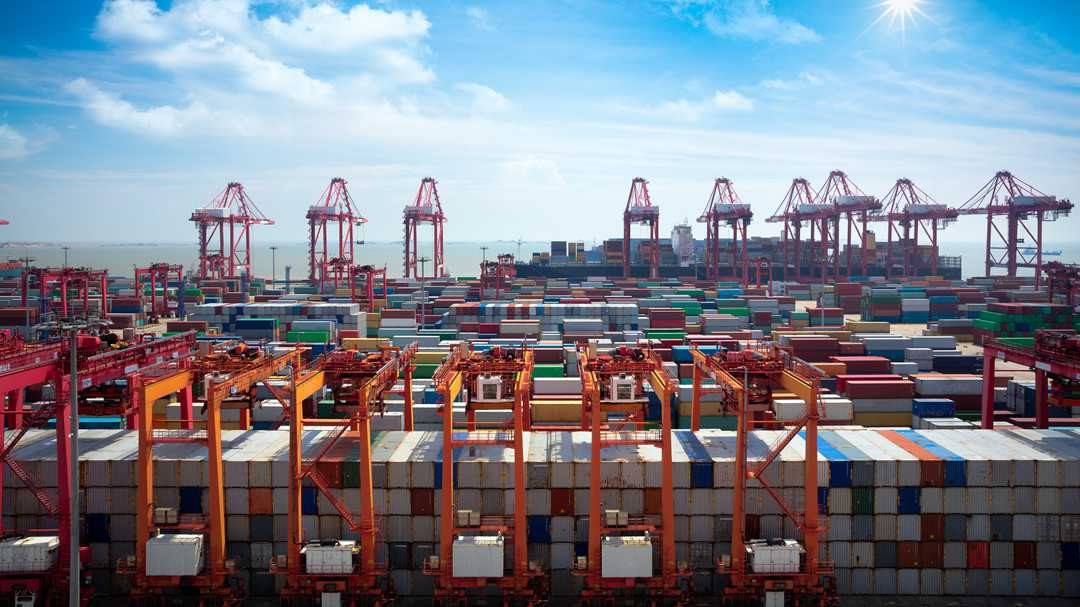Russia is hoping to double bilateral trade with China within six years, following Russian President Vladimir Putin’s remarks that trade is expected to hit $100 billion by this year’s end.
A document released Thursday by the Russian government states, “It is planned to increase Russia’s trade with China to $200 billion and to increase Chinese investment to the Russian economy to $15 billion.”
China has become Russia’s largest economic partner, accounting for 15 percent of Russian international trade. Last year trade between the two countries reached $87 billion. Exports from China to Russia went up by 13.5 percent, to $31.2 billion, in the first eight months of this year, while imports of Russian goods to China jumped by 38.5 percent, to $36.34 billion. This means trade has averaged about $8.4 billion per month, putting two-way trade on track to hit Putin’s expected target by this year’s end.
The two countries set a target of $100 billion several years ago, but that was stymied by the economic shocks that hit the region between 2014-16 due to a drop in the price of crude oil. Now, with $100 billion in sight, Russian President Vladimir Putin and Chinese President Xi Jinping have set a new target of $200 billion by 2024.
Given current geopolitical dynamics and trade wars between the U.S. and China, this may not be far-fetched. Since July, the Trump administration has challenged China over its alleged unfair trade practices and imposed a 25 percent tariff on $34 billion worth of Chinese products that get imported into the U.S. Earlier this month, President Trump threatened to impose a ten percent tariff on another $200 billion worth of Chinese goods, escalating what has already become a closely watched “trade war” between the world’s two largest economies.
As a result of Trump’s moves, China has penalized the U.S. by imposing tariffs on $60 billion worth of American goods.
“China is forced to respond to U.S. unilateralism and trade protectionism, and has no choice but to respond with its own tariffs,” an official in China’s finance ministry told Al Jazeera last week.
The situation grew worse when China became a casualty in Washington’s policy of sanctioning any third country dealing with Russia. On September 20, the White House imposed financial sanctions on the Equipment Development Department of the Chinese Defense Ministry for buying Russian weapons.
“This is unfair competition, dishonest competition, an attempt to use non-market methods that run counter to norms and principles of international trade to squeeze the main competitor of U.S. makers out of the markets,” said Kremlin spokesman Dmitry Peskov.
Meanwhile, Chinese foreign ministry spokesman Geng Shuang urged the Trump administration to withdraw the sanctions imposed on China, saying that otherwise, the U.S. will have to “bear the consequences.”







 Azerbaijan and Armenia started the process of demarcation of their border on Tuesday, with the installation of the first border markers based on ge...
Azerbaijan and Armenia started the process of demarcation of their border on Tuesday, with the installation of the first border markers based on ge...
 Armenian sappers commenced on Monday mine-clearance operations in the territories adjacent to the Saint Mary Church in village of Voskepar (Armenia...
Armenian sappers commenced on Monday mine-clearance operations in the territories adjacent to the Saint Mary Church in village of Voskepar (Armenia...
 Russian Foreign Minister Sergei Lavrov has reasserted that Moscow has no intentions to stop the fighting in Ukraine, even if peace talks commence.
Russian Foreign Minister Sergei Lavrov has reasserted that Moscow has no intentions to stop the fighting in Ukraine, even if peace talks commence.
 Iran has refuted reports of alleged damage to Shimon Peres Negev Nuclear Research Centre located southeast of Dimona, Israel, during the recent air...
Iran has refuted reports of alleged damage to Shimon Peres Negev Nuclear Research Centre located southeast of Dimona, Israel, during the recent air...
 Iran’s Foreign Minister, Hossein Amir-Abdollahian, has labeled a foiled Israeli drone attack in certain parts of the country as a "failure" for Isr...
Iran’s Foreign Minister, Hossein Amir-Abdollahian, has labeled a foiled Israeli drone attack in certain parts of the country as a "failure" for Isr...



